#Neurodegenerative
Explore tagged Tumblr posts
Text

FROM DISCOVERY TO DELIVERY: Neuronal exosomes and the evolution of neurodegenerative disease treatment
Neuronal exosomes are revolutionising neurodegenerative disease management. They are unlocking new treatment avenues in diagnostics, drug development, and clinical trial management. This work explores innovative, personalised approaches, transforming traditional challenges into opportunities for enhanced neurological care.
Discover more: https://www.pharmafocusasia.com/research-development/from-discovery-to-delivery
0 notes
Text
Understanding Neurodegenerative Diseases: Causes, Symptoms, and Treatment Options
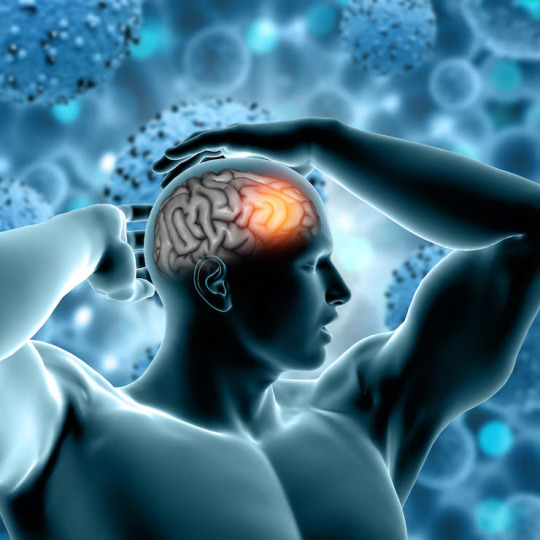
Neurodegenerative diseases, characterized by the progressive loss of brain cells, are a growing global health concern. These conditions can significantly impact a person's quality of life and often lead to disability. This blog post will explore the causes, symptoms, and potential treatment options for neurodegenerative disorders, focusing on the promising field of regenerative stem cell therapy.
Common Neurodegenerative Diseases
Several neurodegenerative disorders affect millions of people worldwide. Some of the most well-known include:
Alzheimer's disease: Characterized by memory loss, confusion, and difficulty with tasks.
Parkinson's disease: Associated with tremors, rigidity, and slow movements.
Multiple sclerosis (MS): An autoimmune disorder affecting the central nervous system, leading to symptoms like numbness, weakness, and vision problems.
Amyotrophic lateral sclerosis (ALS): A progressive disease that affects motor neurons, causing muscle weakness and atrophy.
Prion Disease: Prion diseases are a rare and fatal group of conditions caused by misfolded proteins that accumulate in the brain. These diseases can lead to severe brain damage and rapid deterioration. Creutzfeldt-Jakob disease is the most common type of prion disease and typically occurs for unknown reasons. In some cases, prion diseases can be inherited, with a longer survival time between one and ten years.
How common are Neurodegenerative brain diseases?
Neurodegenerative disorders are a significant global health concern. While their prevalence varies depending on specific conditions and geographic regions, they affect millions worldwide.
Here are some statistics:
Alzheimer's disease: The most common neurodegenerative disease, affecting an estimated 50 million people globally.
Parkinson's disease: Approximately 10 million people worldwide are living with Parkinson's disease.
Multiple sclerosis: MS affects around 2.8 million people globally.
Amyotrophic lateral sclerosis: ALS is a rare disease, with an estimated 5-10 cases per 100,000 people.
Causes of Neurodegenerative Diseases
The exact causes of many neurodegenerative diseases remain unknown. However, several factors are thought to contribute, including:
Genetics: Some diseases have a strong genetic component.
Environmental factors: Exposure to toxins or certain lifestyle factors may increase the risk.
Protein misfolding: Abnormal protein aggregation can damage brain cells.
Inflammation: Chronic inflammation in the brain can contribute to disease progression.
Symptoms of Neurodegenerative Disorders
Symptoms of neurodegenerative diseases can vary depending on the specific condition. However, common symptoms often include:
Cognitive decline: Memory loss, difficulty concentrating, and confusion.
Motor problems: Tremors, muscle weakness, difficulty walking, and coordination issues.
Sensory changes: Numbness, tingling, or vision problems.
Emotional disturbances: Mood swings, depression, and anxiety.
Motor neuron diseases: It affects parts of your brain and nervous system that are responsible for muscle control. As the neurons in those areas die, you lose muscle control. That causes weakness and, eventually, paralysis.
Treatment Options
While there is currently no cure for most neurodegenerative disorders, various treatments can help manage symptoms and improve quality of life. These may include:
1. Medication
Disease-specific: Medications can target the underlying causes or symptoms of specific diseases. For example, levodopa is used to treat Parkinson's disease by increasing dopamine levels.
Symptom management: Medications can help alleviate pain, tremors, or cognitive decline.
2. Therapy
Physical therapy: Can help improve mobility and strength.
Occupational therapy: Can assist with daily living activities.
Speech therapy: Can aid in communication difficulties.
Cognitive therapy: Can help manage cognitive changes and improve memory.
3, Lifestyle modifications
Healthy diet: A balanced diet can support overall health and well-being.
Regular exercise: Physical activity can help maintain muscle strength and improve mood.
Stress management: Techniques like meditation or yoga can reduce stress and anxiety.
4. Supportive care
Home care: Assistance with daily tasks can help individuals maintain independence.
Hospice care: Provides comfort and support for individuals in the advanced stages of the disease.
5. Emerging Therapies
Stem cell therapy: Research is exploring the potential of stem cells to repair damaged brain tissue.
Gene therapy: This involves introducing healthy genes to replace defective ones.
Deep brain stimulation involves implanting electrodes into the brain to stimulate specific areas.
Regenerative Stem Cell Therapy: A Promising Approach
It has emerged as a potential treatment for neurodegenerative diseases. Stem cells are undifferentiated cells that can develop into various cell types, including neurons. By introducing stem cells into the brain, researchers hope to stimulate the growth of new neurons and repair damaged tissue.
Conclusion
Neurodegenerative disorders are a significant health challenge, but ongoing research and advancements in treatment options offer hope for the future. While current treatments can help manage symptoms, regenerative stem cell therapy holds promise as a potential breakthrough in the field. As research progresses, we may be closer to developing effective therapies that can slow or even reverse the progression of these debilitating diseases.
0 notes
Text
Parkinson's Disease: A Promising Breakthrough for Halting Disease Progression
Parkinson's Disease: A Promising Breakthrough for Halting Disease Progression #ParkinsonsDisease #USP30 #Dopamine #Neurodegenerative
Parkinson’s disease (PD) is a neurodegenerative disorder that affects millions of individuals worldwide. It is characterized by the progressive loss of dopamine-producing neurons, leading to a decline in dopamine levels and a range of symptoms including tremors, stiffness, and difficulties with movement and coordination. Despite extensive research, there has been a lack of disease-modifying…

View On WordPress
0 notes
Text
'Rugby'
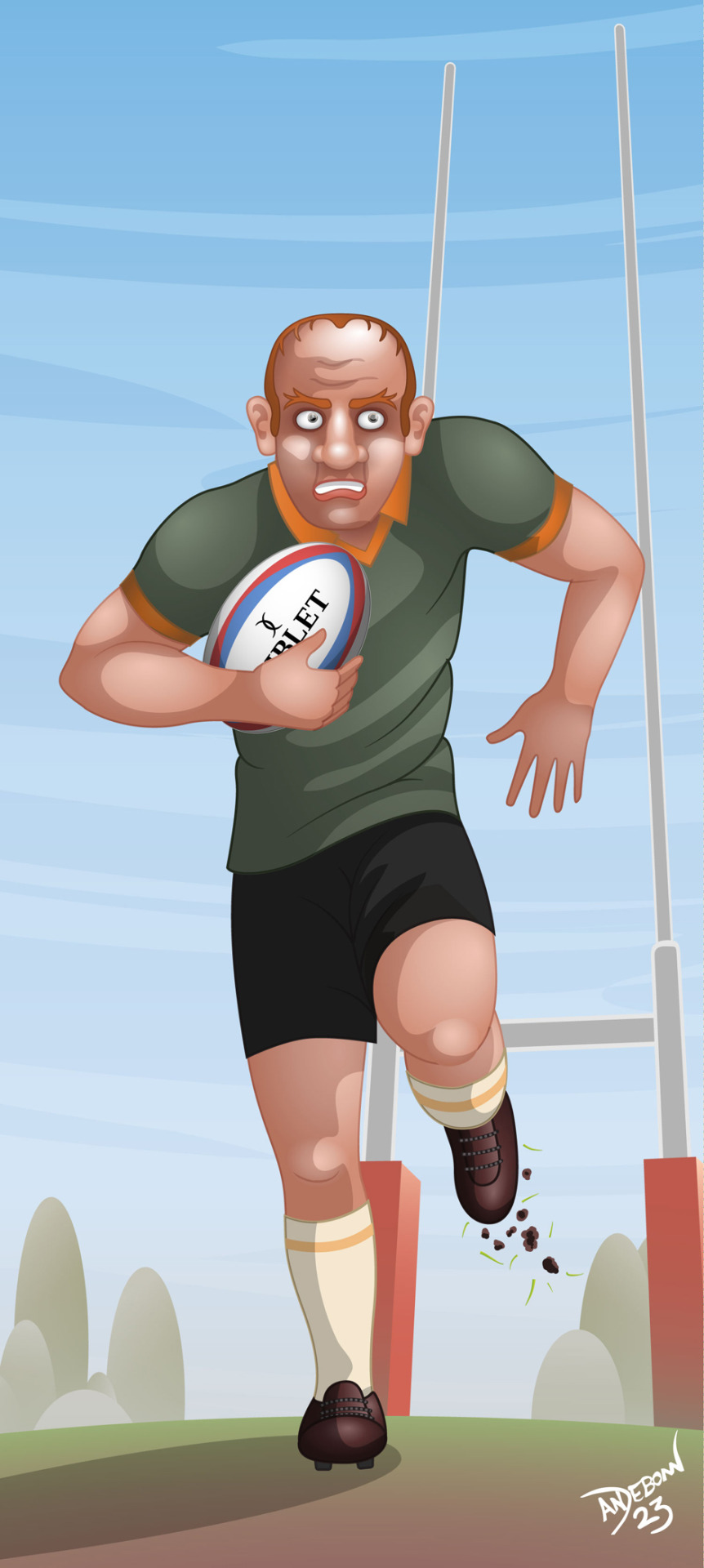



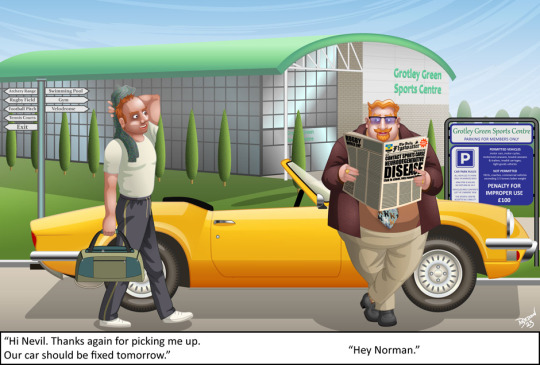


0 notes
Text
The Most Common Cause of Dementia: Alzheimer's Disease
Dementia is a condition that affects many people around the world, and the most common cause of dementia is Alzheimer's disease. In this blog post, we will discuss what Alzheimer's disease is, how it affects individuals and society, and the ongoing efforts to support and find solutions for this condition.

Understanding Alzheimer's Disease: Alzheimer's disease is a progressive brain disorder that gradually affects a person's memory and thinking abilities. It is the leading cause of dementia, accounting for about 60-70% of all dementia cases. While it mainly affects older adults, there are instances of early-onset Alzheimer's disease occurring in individuals younger than 65.
Symptoms and Progression: The initial signs of Alzheimer's disease are often subtle memory loss and difficulty remembering recent events or conversations. As the disease progresses, individuals may struggle with language skills, decision-making, and problem-solving. They might also experience confusion, disorientation, mood swings, and changes in their personality.
The underlying cause of Alzheimer's disease involves the build-up of abnormal protein structures called amyloid plaques and tau tangles in the brain. These deposits disrupt communication between brain cells, leading to their degeneration and eventual cell death.
Impact on Individuals and Society: Alzheimer's disease not only affects individuals diagnosed with the condition but also has a significant impact on their families and caregivers. As the disease progresses, individuals require increasing assistance with daily activities and may eventually need full-time care. This places emotional, physical, and financial burdens on families, affecting their quality of life.
Furthermore, Alzheimer's disease has a broader impact on society. The costs associated with healthcare, caregiving, and lost productivity are substantial. With the aging population, the prevalence of Alzheimer's disease is expected to increase, highlighting the urgent need for research, prevention strategies, and improved care approaches.
Current Research and Support: Researchers are actively studying Alzheimer's disease to gain a better understanding of its mechanisms and develop effective treatments. They are exploring various approaches, including immunotherapy, genetic risk factors, lifestyle interventions, and early detection methods. Advances in brain imaging and biomarker research offer hope for earlier diagnosis and intervention.
Support for individuals with Alzheimer's disease and their caregivers is crucial. Many organizations provide resources, support groups, and educational materials to help individuals navigate the challenges associated with the disease. These resources aim to improve the quality of life for affected individuals, support caregivers, and raise awareness about Alzheimer's disease.
Conclusion: Alzheimer's disease is the most common cause of dementia worldwide, affecting millions of individuals and their families. While there is currently no cure, ongoing research efforts offer hope for a better understanding, earlier detection, and innovative treatments. Additionally, providing support and increasing awareness about Alzheimer's disease are essential to improve the lives of those affected and reduce the burden on families and caregivers. By working together, we can strive for a future where effective treatments and preventive strategies help mitigate the impact of this devastating disease
#alzheimer's#disease#dementia#doctor#medicare#alzheimers#memory#cognitive#confused#fatigue#recognition#remember#neurodegenerative#tired#fog#forget#lost
1 note
·
View note
Photo
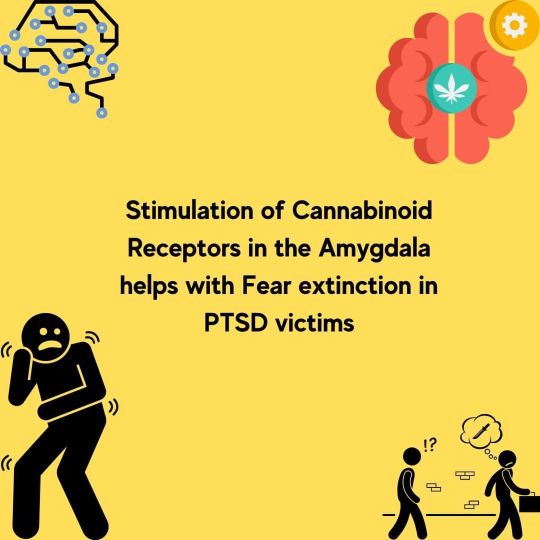
#Repost @cannabasic_ ・・・ There is obviously a certain context to every memory that takes place in an individual’s life that reminds them of those events, including the traumatic ones. Similarly, individuals who get diagnosed with PTSD also experience a traumatic event within a certain context. Could be a certain sound, visual or a particular smell, that reminds him or her of the aversive event that took place. In other words, generally, people are conditioned to associate a certain context to the memory of the event that took place by the triggering of flashbacks. This is called fear conditioning. Normally, most people who are conditioned by a certain trigger become deconditioned to it after the trigger appears frequently in the abstinence of the event that caused fear conditioning, leading to fear extinction. In PTSD patients however, the fear extinction is not achieved, due to the “hyperactivity” and impaired ECS activity in the amygdala of the brain. Amygdala is a region in the brain responsible for experiencing fear, fear conditioning, and fear extinction. Research has shown that CB1 receptors of the endocannabinoid system in the amygdala are less active in PTSD patients, which may very well be the reason of impaired fear extinction. . . . . Read more- Link in Bio #canna #cannacurious #cannabisscience #cannabinoidscience #terpenes #terpenes #terpenescience #cannabinoid #amygdala #fear #ptsd #cannabisandptsd #cannabisandneurology #cannabisandbrain #cannabisandptsd #neurodegenerative (at Immersive Van Gogh NYC) https://www.instagram.com/p/CoU3eVWOMQ_/?igshid=NGJjMDIxMWI=
#repost#canna#cannacurious#cannabisscience#cannabinoidscience#terpenes#terpenescience#cannabinoid#amygdala#fear#ptsd#cannabisandptsd#cannabisandneurology#cannabisandbrain#neurodegenerative
0 notes
Text
There’s a renewed call for a public inquiry into why so many New Brunswickers have come down with neurodegenerative symptoms and illnesses.
When an initial cluster of over 40 people presented with similar symptoms – muscle spasms, atrophy and progressive dementia – it was thought to be Creutzfeldt-Jakob disease, until they tested negative.
That’s when a Moncton-based neurologist thought they could be experiencing an unknown brain disease. The cluster was initially focused in the Moncton and Acadian Peninsula areas of the province.
But after over a year of confusing back-and-forth for patients and their families, the province of New Brunswick halted further investigation by its federal counterparts, saying there was an explanation for each patients’ illness.
This week, New York Times Magazine released an article that calls that into question, citing that neurologist Dr. Alier Marrero believes the number of people seeking help with similar symptoms is now over 400.
It has sparked Green Party MLA Megan Mitton to call for a public inquiry into what happened internally between the province and Ottawa, as well as further testing, including environmental, to try and find patients some answers.
Full article
Tagging: @allthecanadianpolitics
#new brunswick#public health#neurodegenerative disease#neurodegenerative illness#neurological illness#neurological disease#healthcare#health#illness#mine#new brunswick news#canadian news#cdnpoli
135 notes
·
View notes
Text




AMELIA SHEPHERD
— in Grey's Anatomy 20.01 - We've Only Just Begun
You told me to say whatever's in my- I'm sorry! It's making me think that maybe Meredith isn't insane.
#amelia shepherd#ameliashepherdedit#grey's anatomy#greysanatomyedit#greysedit#gaedit#caterina scorsone#laurealagifs#ga: 20x01#tvarchive#dailytvgifs#dailytvwomen#tvedit#tvgifs#ameliabyepisode#meredith and amelia are like let's cure every neurodegenerative disease ever#still continuously losing with this show but i've accepted it. kind of. will just keep giffing amelia
109 notes
·
View notes
Text
A spectrum of neurodegenerative diseases, including frontotemporal dementia (FTD), progressive supranuclear palsy (PSP), and corticobasal degeneration (CBD) are due to the accumulation of abnormal, misfolded tau proteins in the brain. A team of researchers has found potential ways to interrupt this process by targeting “sticky” sites along the long form of mutated tau, preventing the misfolding and spreading of the neurofibrillary tangles.
Continue Reading.
62 notes
·
View notes
Text
Did you know. Even if you stop drinking alcohol. You can still drink so much non-alcoholic beer you throw up from acid reflux. Anyway I'm too old to kin fictional characters but some part of me...some part of me does admittedly feel a deep and abiding kinship with Daniel Molloy
22 notes
·
View notes
Text
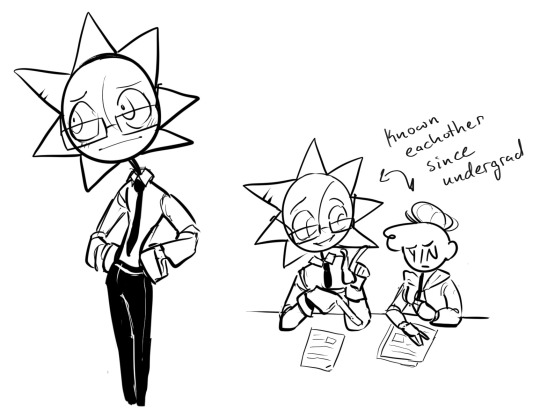
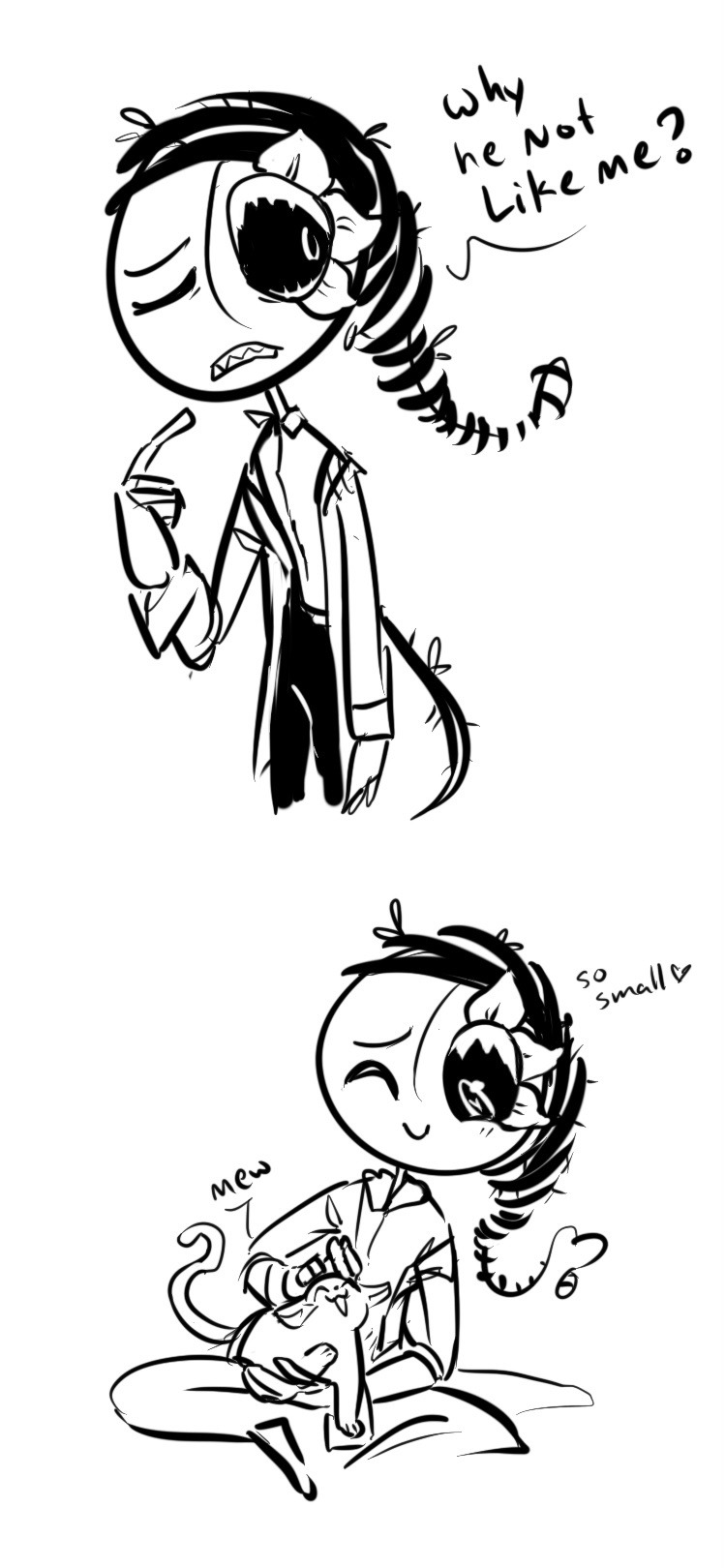
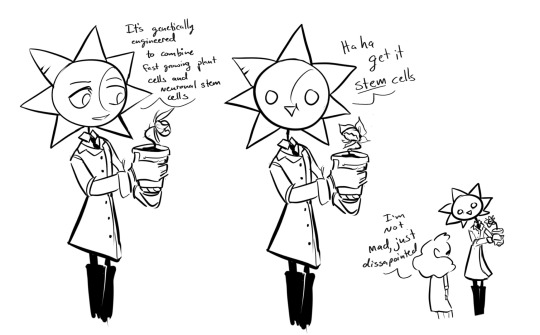
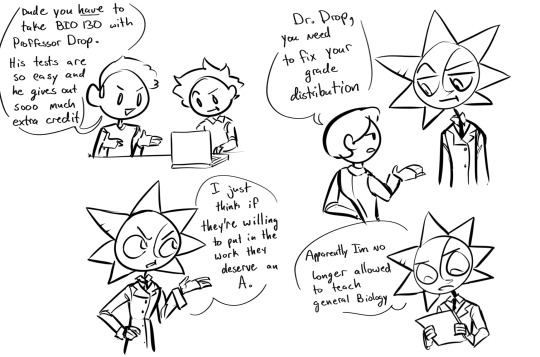
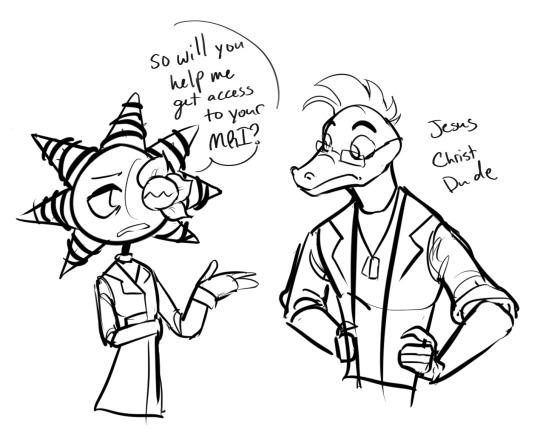

Woot woot more mad scientist au doodles!
Credit to @oobbbear
Another doodle under the cut (its my favorite but its gory so be warned)

#I imagine sun and y/n have known eachother since undergrad#they went their separate ways since sun pursued a phd while yn went directly into the workforce#eventually they met back up while sun was setting up his lab at the university since he needed a lab tech#also personal aside#I can't believe they purposely make the introductory courses for premed ridiculously hard to purposely 'cull' those they don't think#are 'worthy'#thats some elitist fruckign aaaaaa#any way#sun teaches in the intro bio class lol cause he works with plants#also woops i added the glamrocks#freddy's the PI with the others as his grad students#they work with neurodegenerative diseases#luckily one of them is morally dubious enough to let sun use their equipment#maaaaan if anyone found out about this they'd be in suuuper big trouble#good thing that will never happen#sundrop#moondrop#fnaf sun#fnaf moon#mad scientist au#aaa have more planned but things are heating up i have so much less free time aaaaaa#I need to stop putting stuff in the tags ive had to rewrite this 3 times now#tw gore#tw body horror#my art#fanartception
489 notes
·
View notes
Text
having a hypochondriac moment pray for me babes
#keep feeling like my muscles are weird? like some kind of tremors???#specifically if I turn my head one way sometimes it feels like my head is shaking a tiny bit#which -- I cannot stress this enough -- is probably normal#but it made me hyperaware now and I feel like I have some kind of tremor from neurodegenerative disease 😭#and like I can't walk normally and none of my muscles are normal#psychosomatic nonsense is... fun#and by fun I mean miserable 👍#Lu rambles#the hypochondriac blues
21 notes
·
View notes
Text
My forever struggle is that I’m in love with both neuroscience and medicinal/organic chemistry and I’m just insane enough to be double dipping in both constantly
#Currently doing orgo research but also working in a neurodegenerative diseases clinic#Debating a masters in organic/medicinal chemistry but want to one day become a neurosurgeon etc etc#Like why do i have to choose#Im so in love w both of these fields#Why does a girl have to choose anything at all. Why can’t a girl just have it all at the same time fr#I even had a biophysics era in a computational neuroscience independent study once#I’m genuinely the definition of indecisive
47 notes
·
View notes
Text
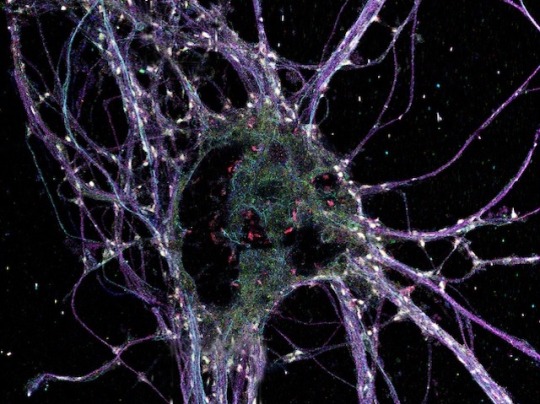
Painting Proteins
To understand a huge ecosystem like a rainforest, you might need to watch a few individual species closely: which animal eats which, or how individual trees affect the surrounding area. At the cellular level, countless individual proteins interact in the same way, but these are even harder to track than animals in the jungle. A new protein-labelling approach, called SUM-PAINT, makes it possible, and researchers have created an atlas of brain cells at the level of individual molecules, tracking 30 different types of protein and unravelling the complexity of 900 synapses – junctions between cells. Looking at the whole system and individual brain cells (pictured, with snapshots of 30 proteins overlaid to show the cumulative complexity) the team discovered a new type of synapse, demonstrating a tool that they hope will help reveal hidden details of cell biology, and lead to new treatment approaches for neurodegenerative diseases.
Written by Anthony Lewis
Image from work by Eduard M. Unterauer, Sayedali Shetab Boushehri and Kristina Jevdokimenko, and colleagues
Max Planck Institute of Biochemistry, Planegg, Germany
Image originally published with a Creative Commons Attribution 4.0 International (CC BY 4.0)
Published in Cell, March 2024
You can also follow BPoD on Instagram, Twitter and Facebook
9 notes
·
View notes
Note
If you're going to call out specific groups of people who aren't allowed to relate to your posts (instead of just, I don't know... ignoring people who don't respond to your posts the way you'd like?), can you at least get your facts straight? ADHD absolutely can cause severe memory issues. Real, actual, severe, debilitating memory problems. You're letting your (understandable!) frustration with certain people who do talk over other people with more severe disabilities turn into actual intracommunity ableism, and it sucks.
Lmao clearly you don't understand what "severe" means. Your ADHD does not cause you memory issues on par with anterograde amnesia from a moderate-severe brain injury. It does not cause you memory issues on par with dementia. You assume you can relate because you think you're the most disabledest ever and nobody can possibly suffer more than you, but you really can't. Some people are more disabled than you, that isn't an attack on you personally. It isn't ableism to tell you that something isn't about you, which it isn't.
I wouldn't have to add things like that to posts if people just like you didn't CONSTANTLY insist on making posts by people with more severe disabilities than you all about yourselves and derailing them because you find more severely disabled people invalidating. THAT'S ableism. You try dealing with that on almost every single post you make, no, every time you try to talk about your experiences, then you can talk to me about "just ignoring it". Sometimes things just aren't about you, learn to deal with it and respect other disabled people's boundaries, or leave the rest of us the fuck alone.
#'ADHD can cause memory issues as severe as neurodegenerative diseases and severe brain damage!!'#may just take the cake for stupidest thing I've heard on this site#good job demonstrating EXACTLY what we're all talking about#ableism#this ask was definitely sent by someone who is desperate to derail but didn't want to reblog the disclaimer lmao
2 notes
·
View notes
Text
LOVELY DAUGHTER UNSOUND MIND!
#her name is the morning dews her name is light ! her brother has no excuse for his cruelty she can#change the world she has to change this country first if one day she resents me i hope i will care for her stil#his name is the lake his name is the singing bird he is going to to die soon its all neurodegenerative i miss him dearly#and ill miss him more still. a pool of wealth gathers on the shores of an island in the carribean holding ears#building domes and turning heads away in terror of the finite. a photo to the chat of a styrofoam cup full of himalayan salt#sent by the millionaire. answer echoes answer. would you like to be a guest speaker inside my lungs?#THROW THE ARROW INSIDE THE AUTOCLAVE PIERCE THE APPLE ON THEIR HEAD WITH GREAT STERILITY WITH GREAT CARE WITH SOUND MIND#somewhere over the ocean there is turkish coffee the dark wood of a berlin coffee shop the white sunlight of swiss alps#my friend sending me poetry in jest from tokyo her heart in rural china#my heart with the large sun of northern iran flowing through streetlight poles at dusk holding two trans girls hand in hand
11 notes
·
View notes